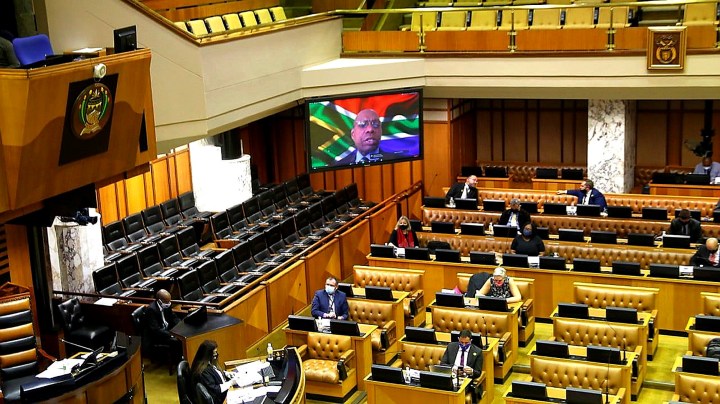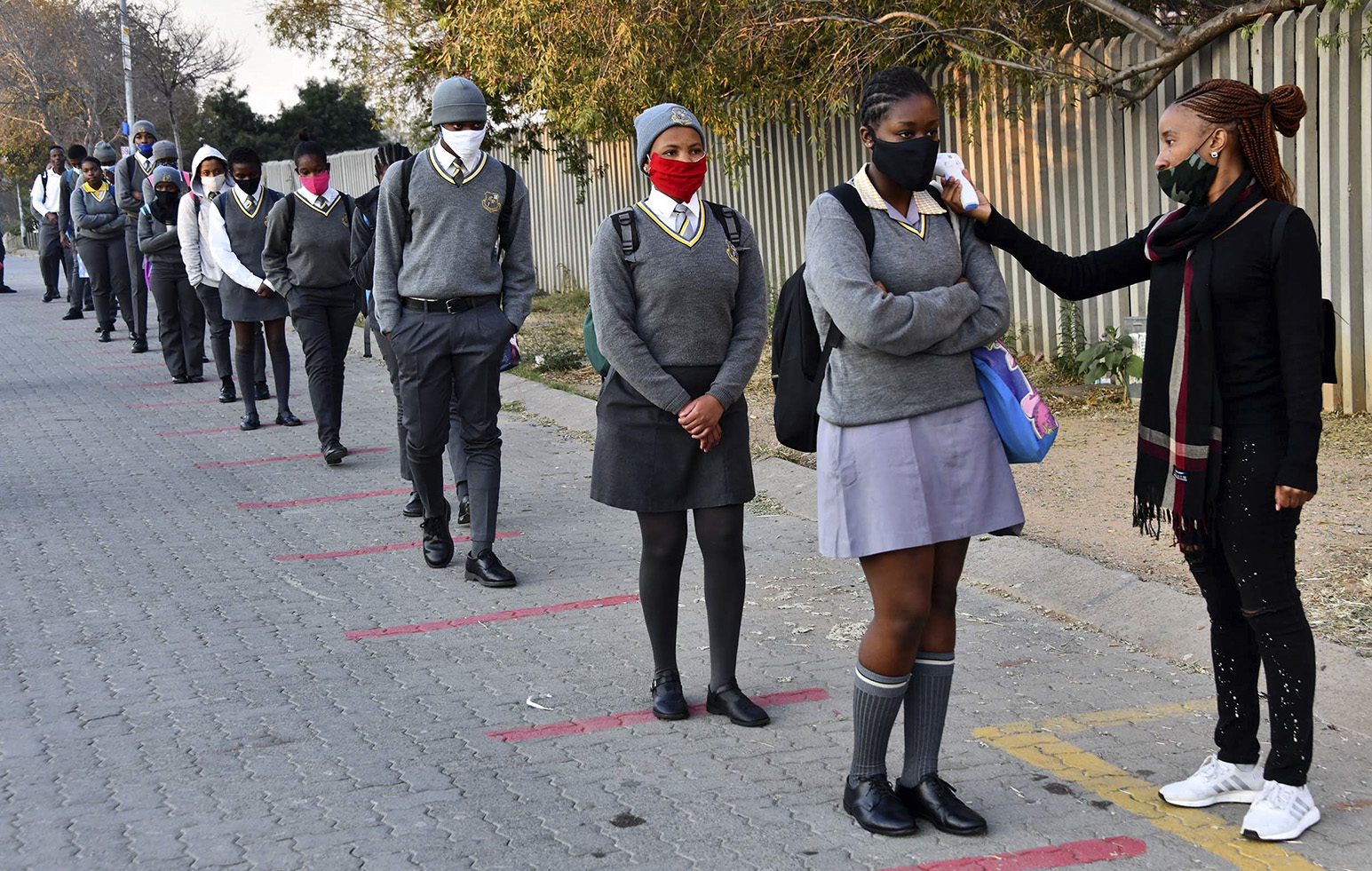Maverick Citizen Op-Ed
Parliamentary oversight resumes, but challenges remain

The resumption of national and provincial legislature committee meetings has been a welcome response to concerns around the need for Parliament to continue fulfilling its constitutional role.
On 15 March, President Cyril Ramaphosa declared a National State of Disaster in response to the Covid-19 pandemic. On 18 March, South Africa’s Parliament announced that it would suspend parliamentary business until further notice.
Parliament’s announcement was met with serious concern among civil society organisations, which emphasised the importance of continued parliamentary oversight over executive action and public participation in the process of executive decision-making. The organisations expressed concern that the Disaster Management Act does not require the national executive to report to Parliament on action taken during the National State of Disaster and the lack of provision in the act for the oversight function of members of Parliament.
Civil society argued that for South Africa to be a truly democratic country, Parliament must be functioning effectively. Arguably, now more than ever, members of Parliament must pay careful attention to executive action and whether action taken is lawful, rational and consistent with the Constitution. For this reason, civil society organisations advocated for Parliament and the provincial legislatures to, among other things:
- Establish ad-hoc committees on Covid-19; and
- Ensure the continuation of legislature oversight in the form of committee meetings using online platforms such as Skype, Zoom and Google Hangouts that must be made publicly available.
After a series of communications from Parliament, including the presiding officers, of Parliament’s acknowledgment that “the role of Parliament remains indispensable, during this period of national lockdown and the extended period of social distancing”, coupled with ongoing pressure from civil society, we saw the resumption of national and provincial legislature committee meetings via online platforms during April. On the reopening of the Western Cape Provincial Parliament (WCPP), the speaker of the WCPP, Masizole Mnqasela said: “(W)e are committed to continuing to operate as a democratically elected Parliament and to fulfilling our mandate and ensuring that the democratic space is not compromised – no matter the circumstances.”
Committees whose oversight relates to government departments primarily responsible for Covid-19 interventions were prioritised. On 10 April, the first virtual committee meeting was held by the Health Portfolio Committee of the national legislature. The meeting was attended by the minister of health to enable committee members to discuss with the executive issues pertaining to the pandemic.
The Equal Education Law Centre (EELC) monitors the Portfolio Committee on Basic Education, which held its first virtual meeting on 29 April. The meeting provided an opportunity for the Department of Basic Education (DBE) to brief the committee on plans for the phased reopening of schools. Among other things, DBE updated on the development of a list of prerequisites before schools would be permitted to reopen, including the provision of adequate water and sanitation and personal protective equipment for learners and teachers.

Learners and staff are screened in compliance with health, safety and social distancing requirements at Eastbank School in Alexandra on 8 June 2020. (Photo: Elmond Jiyane, GCIS)
In the WCPP, the provincial legislature established an Ad-hoc Committee on Covid-19. The committee was tasked with overseeing the action of the provincial executive in the Western Cape. The establishment of the committee provides a centralised forum for oversight. The first meeting of the Ad-hoc Committee on Covid-19 took place on 17 April via Microsoft Teams and the first virtual sitting of the House was held on 23 April 2020. On 8 May, the committee was addressed by the Western Cape Department of Education (WCED) on the reopening of schools. During the meeting, the WCED presented its strategy to support learners during the lockdown, including how the WCED would be providing nutritional support to learners. The WCED updated that it had already provided food to 912,988 learners in the province.
The resumption of national and provincial legislature committee meetings has been a welcome response to concerns around the need for Parliament to continue fulfilling its constitutional role. Moreover, information presented at committee meetings monitored by the EELC has provided valuable insight into the DBE’s and the WCED’s planning for the reopening of schools. Information obtained at meetings has been used to inform engagements with government concerning the provision of nutritional support to learners, learning and psycho-social support for learners with disabilities and support for grades not yet phased in. Information obtained during committee meetings has also been used to keep the public informed of executive action and decision-making during this time.
While the move to online platforms has been a helpful step in facilitating continued oversight and accountability during these unprecedented times, it has not been without its challenges. Members of the public continue to experience trouble accessing meetings. For example, when we enquired about access to virtual meetings of the Education Portfolio Committee in the Gauteng Provincial Legislature, we were informed that the public cannot join meetings because IT has been unable to allow public access. Further challenges include disruptions during meetings and poor connections.
While we acknowledge that committee meetings are only one aspect of parliamentary functioning, they play a key role in providing a forum for debate. Considered effort is required to ensure meetings are accessible and well run. Moreover, meetings provide valuable insight into executive planning and decision-making and can be used as a tool to engage government and hold them accountable. For this reason, members of the public are encouraged to follow parliamentary engagements. This can be done by following civil society organisations such as the EELC on social media for updates during meetings and by subscribing to the free Parliamentary Monitoring Group (PMG) website for access to meeting summaries and links to departmental presentations. DM/MC
Astrid Coombes is an attorney and legal researcher at the Equal Education Law Centre (EELC). The EELC forms part of the ParlyWatch coalition that has endorsed open letters addressed to the legislatures referred to in this piece. Some of the thoughts in this piece are informed by the ideas of a group of organisations who contributed to the open letters.
"Information pertaining to Covid-19, vaccines, how to control the spread of the virus and potential treatments is ever-changing. Under the South African Disaster Management Act Regulation 11(5)(c) it is prohibited to publish information through any medium with the intention to deceive people on government measures to address COVID-19. We are therefore disabling the comment section on this article in order to protect both the commenting member and ourselves from potential liability. Should you have additional information that you think we should know, please email [email protected]"





 Become an Insider
Become an Insider